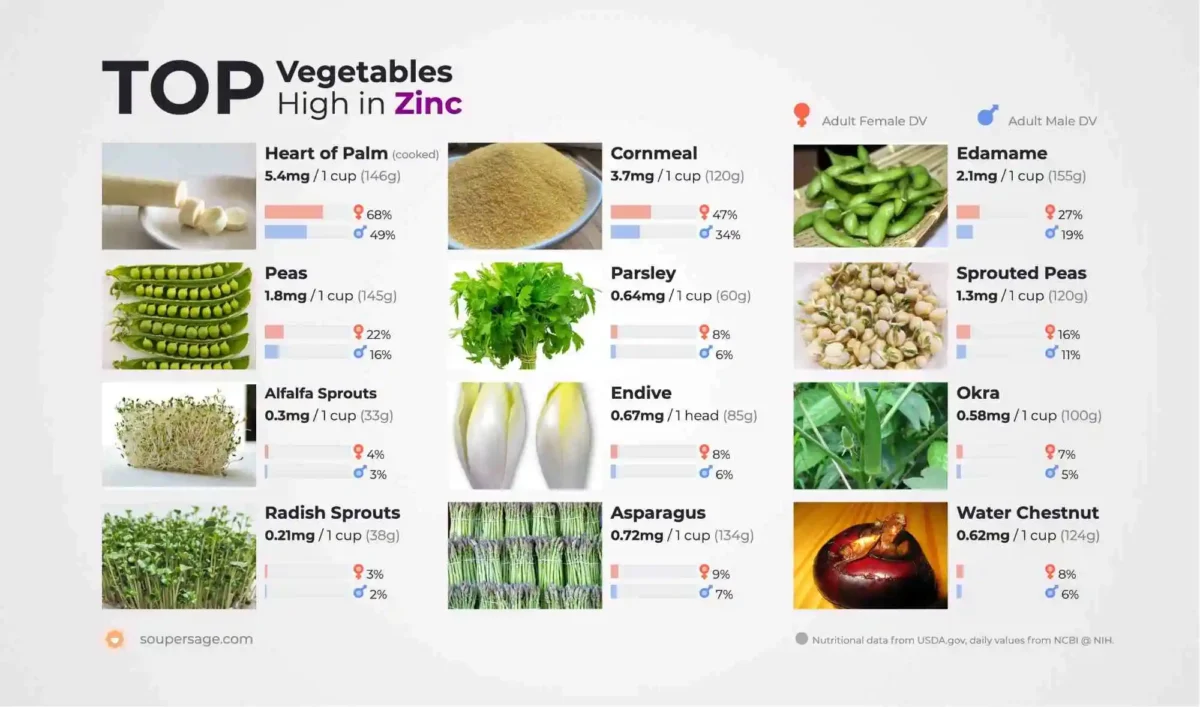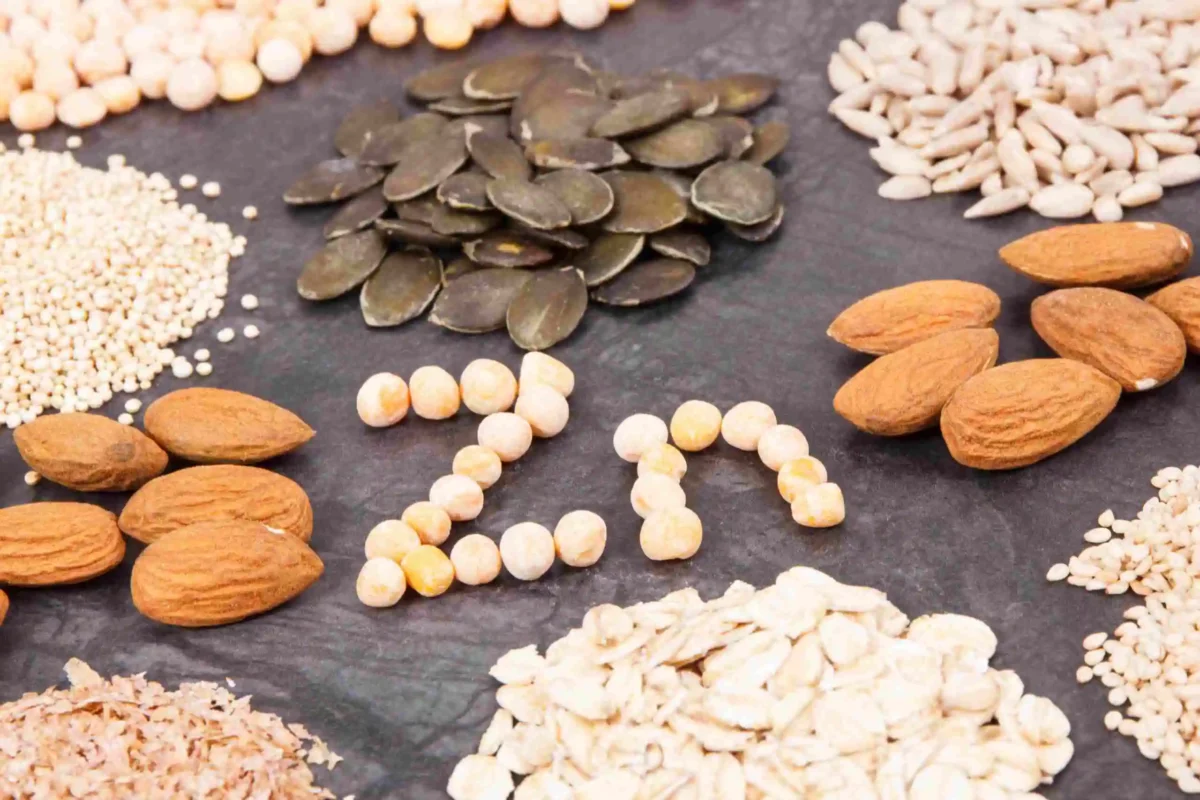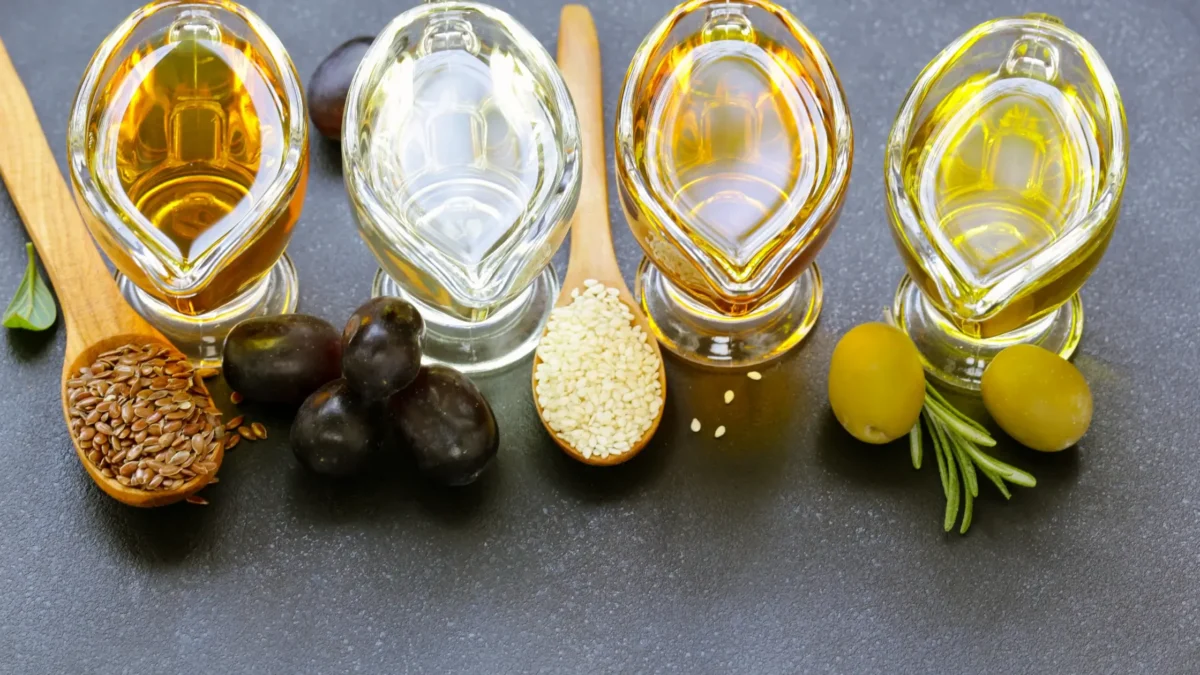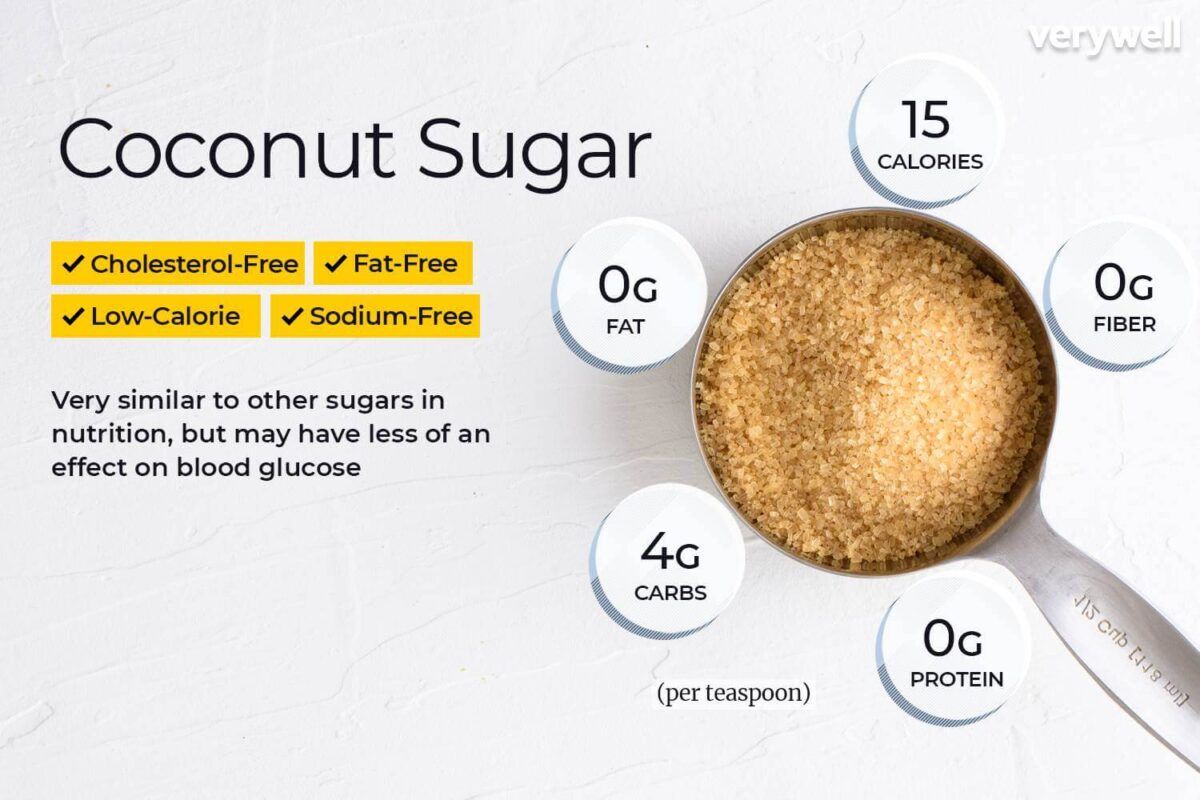Introduction
In today’s health-conscious world, maintaining a balanced and nutritious diet is a top priority for many individuals, including vegetarians. One essential nutrient that often requires attention is zinc. Zinc plays a crucial role in various bodily functions and is necessary for optimal health. In this article, we will explore the importance of zinc in the diet, discuss zinc deficiency, and provide a comprehensive list of zinc-rich foods suitable for vegetarians.
Table of Contents
Zinc-Rich Foods for Vegetarians

Plant-Based Sources of Zinc
For vegetarians who rely solely on plant-based foods, it’s crucial to know which options are rich in zinc. While animal products are traditionally considered the primary source of this nutrient, several plant-based foods can provide an adequate amount of zinc. Legumes, such as chickpeas, lentils, and black beans, are excellent choices as they contain substantial amounts of zinc. Additionally, whole grains like quinoa and brown rice, along with nuts and seeds such as pumpkin seeds and almonds, can also contribute to meeting daily zinc requirements.
Zinc Bioavailability in Vegetarian Diets
Although plant-based foods contain zinc, it’s important to understand that their bioavailability, or the body’s ability to absorb and utilize the nutrient, can vary. Certain compounds present in plant-based foods, such as phytates and fiber, can hinder zinc absorption. To enhance bioavailability, vegetarians can adopt strategies like soaking, sprouting, or fermenting legumes and grains before consumption. Pairing zinc-rich foods with sources of vitamin C can also improve zinc absorption.
Also Read: Amla Candy: The Natural Remedy for Digestive Problems and Immunity Boosting
Top Zinc-Rich Foods for Vegetarians
- Chickpeas: Packed with protein and fiber, chickpeas are not only a versatile ingredient but also an excellent source of zinc.
- Lentils: Rich in iron and folate, lentils offer a substantial amount of zinc, making them a nutritious addition to vegetarian diets.
- Quinoa: This ancient grain contains all essential amino acids, making it a complete protein source and a good plant-based option for zinc.
- Pumpkin Seeds: A handful of pumpkin seeds provides a generous amount of zinc, along with other valuable nutrients like magnesium and omega-3 fatty acids.
- Almonds: Not only do almonds offer a satisfying crunch, but they also contain zinc, healthy fats, and antioxidants.
- Chia Seeds: These tiny powerhouses are packed with zinc, fiber, and omega-3 fatty acids, making them an excellent addition to smoothies or as a topping for various dishes.
- Spinach: Loaded with vitamins and minerals, including zinc, spinach is a nutrient-dense leafy green that can easily be incorporated into salads, stir-fries, or smoothies.
- Sesame Seeds: These tiny seeds are rich in zinc and can be sprinkled on salads, added to baked goods, or used as a flavorful topping for roasted vegetables.
- Tofu: Made from soybeans, tofu is a versatile and protein-rich food that also contains zinc.
- Dark Chocolate: Indulging in a moderate amount of dark chocolate can provide some zinc, along with other health-promoting compounds.
Benefits of Zinc-Rich Foods for Vegetarians
Role of Zinc in the Body
Zinc plays a crucial role in numerous physiological processes, including immune function, DNA synthesis, protein synthesis, wound healing, and cell division. It is also involved in maintaining a healthy sense of taste and smell.
Health Benefits of Adequate Zinc Intake
Ensuring adequate zinc intake through a well-planned vegetarian diet can offer various health benefits. Some of these include enhanced immune system function, improved skin health, optimal cognitive function, support for digestive health, and maintenance of reproductive health.
Zinc for Immune System Support
Zinc is well-known for its immune-boosting properties. It aids in the production of immune cells and helps regulate their activity, making it crucial for a robust and healthy immune system. Consuming zinc-rich foods can be particularly beneficial during cold and flu seasons.
Zinc for Skin Health
Zinc plays a vital role in maintaining healthy skin. It supports collagen production, which contributes to the skin’s elasticity and firmness. Additionally, zinc possesses anti-inflammatory properties, making it effective in managing various skin conditions like acne and eczema.
Zinc for Cognitive Function
Studies have indicated that zinc is involved in cognitive processes, including learning and memory. Adequate zinc intake is crucial for optimal brain function and may help reduce the risk of age-related cognitive decline.
Zinc for Digestive Health
Zinc plays a role in maintaining the integrity of the digestive tract. It supports the repair and regeneration of the gut lining, helping to prevent issues like leaky gut syndrome. Additionally, zinc is involved in the production of digestive enzymes, aiding in proper digestion and nutrient absorption.
Zinc for Reproductive Health
Zinc is essential for reproductive health in both men and women. It is involved in sperm production and maturation in males, while in females, zinc is necessary for proper egg development and hormone regulation.
Conclusion
Incorporating zinc-rich foods into a vegetarian diet is essential for ensuring optimal health and well-being. By including a variety of plant-based sources of zinc, such as legumes, whole grains, nuts, and seeds, vegetarians can meet their dietary requirements and enjoy the numerous health benefits associated with this vital nutrient. So, make sure to add these zinc-rich foods to your grocery list and give your body the nourishment it needs.
Also Read: Effective High Protein Vegetables: A Guidance to Maximize Your Plant-Based Protein
FAQs about Zinc-Rich Foods for Vegetarians
Can vegetarians meet their zinc requirements without supplements?
Yes, vegetarians can meet their zinc requirements through a well-planned diet rich in zinc-containing plant-based foods.
How can I enhance zinc absorption from plant-based sources?
You can enhance zinc absorption by soaking, sprouting, or fermenting legumes and grains. Pairing zinc-rich foods with sources of vitamin C can also improve absorption. Can cooking affect the zinc content of foods? You can enhance zinc absorption by soaking, sprouting, or fermenting legumes and grains. Pairing zinc-rich foods with sources of vitamin C can also improve absorption.
Can excessive zinc intake be harmful?
Yes, excessive zinc intake can be harmful. It’s important to consume zinc within the recommended daily limits to avoid adverse effects.
Are fortified foods a good source of zinc for vegetarians?
Fortified foods can provide additional zinc for vegetarians, but it’s always best to prioritize whole food sources for optimal nutrient intake.
Can cooking affect the zinc content of foods?
Cooking methods like boiling and prolonged heating can result in some zinc loss. To preserve zinc content, opt for cooking methods like steaming or stir-frying that require shorter cooking times.

Shweta Deshmukh Sagvekar is a female food blogger based in Mumbai, India. She writes for Manvik foods, an Amazon affiliate website that sells a variety of groceries, spices, and dry fruits. In addition to her work for the brand, Shweta also writes on her own food blog, where she shares recipes and insights into the culinary world.
Through Manvikfoods’ online webstore, Shweta is able to share her passion for food with people from all over the world. Her writing is characterized by its engaging style and attention to detail, and she has a talent for creating recipes that are both delicious and easy to follow.
Whether she is exploring the latest culinary trends or revisiting classic recipes, Shweta’s love for food shines through in everything she writes. Her work is a testament to the power of good food to bring people together and create lasting memories.




